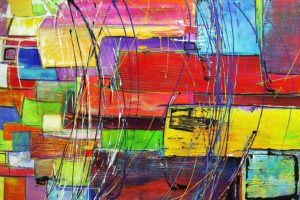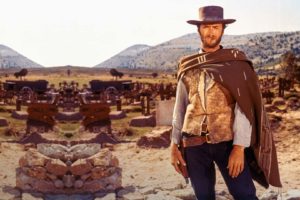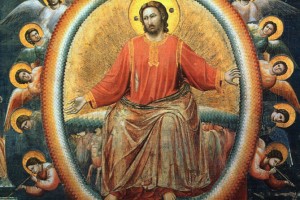It should go without saying that art is a powerful thing. When it is done well it can easily change the way we see the world, subverting our perspective in a way where other forms of communication would struggle or fail. We are surrounded by well executed art, yet it is an exhilarating rarity to find a piece art that is not only aesthetically exquisite, but also serves as an incarnation of the gospel for those with ears to hear. Such is the stage musical Les Misérables. I have seen it performed a few times, and had the opportunity to see another live show this month, hence this post. This is also an opportune time for such a post, as an epic movie musical starring Hugh Jackman, Russell Crowe, and Anne Hatheway is slated to be released in theaters this Christmas. You can watch the trailer here.
I have high hopes for this production, and so long as it remains true to the tenor of the stage musical, it will get the broader culture thinking about despair, pride, sin, hope, humility, grace, and redemption, and will provide a convenient point of contact for discussions about the gospel. What’s more, combining the music and story of the stage production with the magic of the silver screen should make for some great eye/ear candy. If anything, I hope my post will encourage you to see the movie and a live performance (support those starving artists!).
For those looking for a taste, the 25th anniversary concert presentation (i.e. lacking many theatrical elements like movement on stage, props, and a few small sections, thus making the story harder to follow) can be found on YouTube. You owe it to yourself to at least watch the 12-minute prologue, as it will add meat to the bones of what I have to say.
In today’s post I will call your attention to what is perhaps the most obvious application of the gospel—the redemption of Jean Valjean.
***SPOILER ALERT: If you don’t want significant details of the plot divulged, READ NO FURTHER!
The performance begins in Toulon, France in 1815, as a shackled gang of prisoners performs hard labor under the watchful eyes of pitiless guards. Here we are introduced to prisoner #24601, a man named Jean Valjean. Valjean was imprisoned nearly two decades beforehand for breaking into a home to steal food—an act of desperation aiming to alleviate the suffering of him and his family. His original five-year sentence was increased to nineteen following a failed escape. Today Valjean’s sentence is up, and the implacable Inspector Javert has come to release him. Valjean is unchained and given his ticket of leave, a document which (along with the brand upon his chest) will forever mark him as a criminal. Valjean’s initial hopes of achieving some semblance of respite are dashed as he learns he will never be able to escape his past. As an ex-con, he is unable to find fair employment, and when he seeks lodging there is not only no room in the inn, but he is refused an opportunity to sleep in the stable as well.
Now every door is closed to me
Another jail, another key, another chain
For when I come to any town
They check my papers
And they find the mark of Cain
In their eyes, I see their fear:
‘We do not want you here.’
…
And now I know how freedom feels
The jailer always at your heels
It is the law!
This piece of paper in my hand
That makes me cursed throughout the land
It is the law!
Valjean’s fortunes change when the Bishop of Digne brings him into his home, shares his table with him, and offers him a place to sleep. Regrettably, by this time Valjean is so embittered and hardened by his experiences that he views this kindness cynically and takes the opportunity to rob the good Bishop during the night:
The old fool trusted me –
He’s done his bit of good
I played the grateful serf
And thanked him like I should
But when the house was still,
I got up in the night
Took the silver
Took my flight!
Valjean’s midnight caper is halted when, apprehended by the police and suspected of theft, he is escorted back to the Bishop’s home to confirm the crime and return the stolen goods. The officers recount to the Bishop how Valjean pathetically tried to claim that the silver was given as a gift. To the surprise of everyone (especially Valjean) not only does the Bishop affirm Valjean’s false tale, he furthers the ruse by retrieving a set of silver candlesticks. While handing them to Valjean the Bishop sings:
But my friend you left so early
Surely something slipped your mind
You forgot I gave these also
Would you leave the best behind?
So, Messieurs, you may release him
For this man has spoken true
I commend you for your duty
And God’s blessing go with you.
In what is to my mind the most moving scene in all theater, the Bishop bears the cost of Valjean’s sin and declares him to be in the right, justifying him in the face of the law. The police exit, leaving Valjean alone and vulnerable before the Bishop. Instead of using this as an opportunity to shame or scold Valjean, he explains that his purpose in showing this grace was redemptive:
But remember this, my brother
See in this some higher plan
You must use this precious silver
To become an honest man
By the witness of the martyrs
By the Passion and the Blood
God has raised you out of darkness
I have bought your soul for God!
This profound and unanticipated act of mercy grips Valjean and quickens him. He now sees with new eyes what he has become. For once he has felt love. For once he has taken stock of his own depravity. He sings a soliloquy that captures the complexity of his psychological state, alternating between desperate cries of anguish and disgust at his sin, and a serene contemplation of the grace he has just experienced:
What have I done?
Sweet Jesus, what have I done?
Become a thief in the night
Become a dog on the run
And have I fallen so far
And is the hour so late
That nothing remains but the cry of my hate,
The cries in the dark that nobody hears,
Here where I stand at the turning of the years?
If there’s another way to go
I missed it twenty long years ago
My life was a war that could never be won
They gave me a number and murdered Valjean
When they chained me and left me for dead
Just for stealing a mouthful of bread
Yet why did I allow that man
To touch my soul and teach me love?
He treated me like any other
He gave me his trust
He called me brother
My life he claims for God above
Can such things be?
For I had come to hate this world
This world which had always hated me
Take an eye for an eye!
Turn your heart into stone!
This is all I have lived for!
This is all I have known!
One word from him and I’d be back
Beneath the lash, upon the rack
Instead he offers me my freedom,
I feel my shame inside me like a knife
He told me that I have a soul,
How does he know?
What spirit came to move my life?
Is there another way to go?
Now comes the existential moment of decision. What to do and where to go from here? For Valjean this experience of grace and forgiveness can only mean one thing—new creation. The old self must die, and a new self must be put on:
I am reaching, but I fall
And the night is closing in
And I stare into the void
To the whirlpool of my sin
I’ll escape now from the world
From the world of Jean Valjean
Jean Valjean is nothing now
Another story must begin!
The scene ends with Valjean tearing up his ticket of leave, canceling the law’s power over him—a powerful performance of Romans 8:1-4. He takes on a new identity and begins a new life, and from this moment Valjean’s life is energized and animated by grace. Though he eventually comes into a position of wealth and power, and like the fool from Jesus’ parable could have said to himself, “Soul, you have ample goods laid up for many years; relax, eat, drink, be merry,” he chooses instead a life of sacrifice, counting others better than himself, even if this will jeopardize his happiness, freedom, material goods, or his own safety. He pours himself out to all—the orphan, the prostitute, the Pharisee, and the political revolutionary alike. This continues through to the final scene of the play where Valjean leaves his frame of dust behind and departs to be with the Lord. Valjean’s life is a vivid reminder of the transformative power of grace and an artistic materialization of the principle “faith working through love.”
 Matt Weinstock is finishing up a PhD in biochemistry and hopes to participate in the engineering of biological systems to develop green solutions to many of the problems facing our world. He enjoys playing guitar, reading good books, spending time with his lovely wife, and defeating his two young sons in impromptu wrestling matches.
Matt Weinstock is finishing up a PhD in biochemistry and hopes to participate in the engineering of biological systems to develop green solutions to many of the problems facing our world. He enjoys playing guitar, reading good books, spending time with his lovely wife, and defeating his two young sons in impromptu wrestling matches.





5 Comments
Leave your reply.